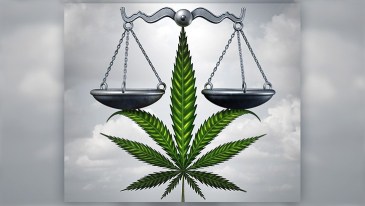
Justices on the US Supreme Court will not hear legal arguments in a lawsuit challenging cannabis’ schedule I prohibitive status under federal law. NORML was among multiple groups that filed friend-of-the-court briefs urging the Supreme Court to hear the case, Washington v. Barr
Plaintiffs in the suit, initially filed in 2017, include a former NFL football player, a disabled military veterans, two children with severe movement disorders, and the non-profit group, the Cannabis Cultural Association.
Plaintiffs argued that federal prohibition violates their civil and constitutional liberties, including their right to freely travel within the United States. They also argued that the federal prohibition of cannabis is “grounded in discrimination and [is] applied in a discriminatory manner.” They further argued that current administrative mechanisms in place to allow for the reconsideration of cannabis’ Schedule I classification – such as the process that allows citizens to petition the US Drug Enforcement Administration – are “illusory” and therefore unlikely to ever be successful.
In 2018, a US District Court Judge rejected plaintiff’s arguments, opining: “No such fundamental right (to possess or use cannabis) exists. Every court to consider the specific, carefully framed right at issue here has held that there is no substantive due process right to use medical marijuana.”
Litigants had appealed their case to the US Court of Appeals for the Second Circuit, which also rejected plaintiffs’ arguments, and had sought to have their case heard by the US Supreme Court. NORML’s amicus brief, authored by NORML Legal Committee member David Holland of New York City, argued that federal scheduling of cannabis is unconstitutional because all three branches of government have promoted laws and policies in direct conflict with its Schedule I status. “The Brief exposes a fundamental paradox — if cannabis is federally illegal for all purposes, and the three coordinate branches of federal government have acted to allow for cannabis businesses, then the federal government is nullifying its own law,” Holland said.
Commenting on SCOTUS’ failure to take up the case, NORML Legal Counsel Keith Stroup said: “This result is not altogether surprising. Courts have rarely provided relief to those of us who believe that marijuana prohibition violates our civil and Constitutional liberties. It is Congress that imposed the federal prohibition of marijuana and ultimately it is up to Congress to repeal this destructive and discriminatory policy.”
A judge for the Federal District Court in Sacramento considered similar arguments in a 2014 legal challenge spearheaded by members of the NORML Legal Committee, but ultimately rejected them — ruling that plaintiffs failed to show that Congress acted irrationally when classifying cannabis as a schedule I controlled substance. “At some point in time, a court may decide this status to be unconstitutional,” the judge determined. “But this is not the court and not the time.”











